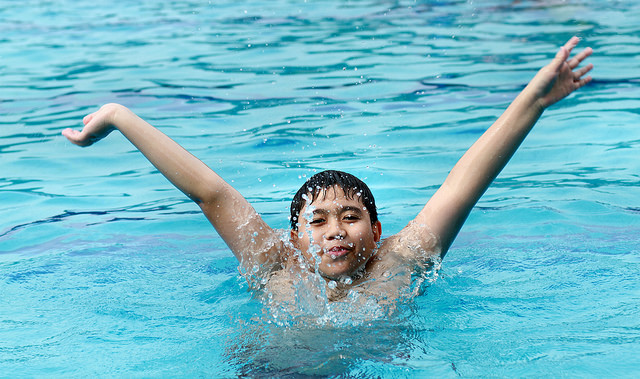Does your child overreact at the most inopportune times? Does she make negative comments about herself when things go wrong? Are there times when you wish she would just chill out?
Children with poor self-esteem and little self-control tend to put themselves down and have difficulty seeing their strengths, tendencies that are exaggerated when a child encounters high levels of stress or experiences some type of failure. Helping her establish a more realistic sense of her strengths and weaknesses will make her better equipped to handle stress and regulate her emotions. In this edition of our Beyond Games series we provide you with a set of strategies to help children improve self-esteem to help them better cope with stress and adversity.
Help your child accept responsibility and praise. Developing an internal locus, or place, of control and esteem rather than acting for external praise and reward is invaluable to your child. Help him experience the satisfaction that accompanies the achievement of small personal goals in order to improve his sense of self-efficacy. He may be better able to work through his emotions when he feels that he has control over situations. Whenever possible, provide choices and work with him to set attainable goals with regard to schoolwork. As he grows and has new experiences, it will be important to reinforce positive aspects of his personality and have open communication about his feelings. A positive self-image can help individuals manage strong emotions more effectively.
Use proven methods to relax your child. Identify what relaxes her and use this knowledge as a tool if you feel she will not be able to control herself effectively in a certain situation. Be careful to use this method as a coping mechanism rather than a crutch. For example, if she becomes overly frustrated with her math homework, have her take a break to watch a cartoon on television and then return to complete her work. Leaving her math homework to watch television and not returning to complete it, however, will set a damaging precedent in avoiding handling her frustration and tackling obstacles.
Focus to manage stress. Your child might benefit from using a “mantra,” a word or phrase that he finds particularly soothing, such as “home” or “calm,” when he is feeling stressed. Learning and practicing this and other focusing techniques, like simple breathing exercises, is easy to do by watching readily available training videos. Recounting a memory of a happier time could also serve to divert his attention from over-reacting and help him to refocus.
Model effective strategies. Parental modeling is a powerful way to demonstrate the appropriate expression of feelings. Model “stopping” behavior or taking a “timeout” in situations of anger or frustration. Teach him how to avoid an angry response by taking 10 deep breaths or closing his eyes for a few seconds to clear his head. Once the initial anger has ceased, brainstorm solutions to the problem or positive alternatives he could use. This strategy could be verbalized, for example, by making a statement like, “I’m frustrated that the computer’s not working, so I’m going to walk away for a few minutes. Then, when I’m calm, I’ll come back and figure out how to fix it or call someone for help. It’s not worth getting upset about. I’ll probably end up being grumpy all day and still have the computer problems.”
Find a game or activity in which she excels. Games are a great way for kids to build self-esteem and self-control. Accomplishing and tackling the kinds of goals and obstacles presented in games requires real skill and develops important executive functions like self-control and self-awareness. Making sure that supplies and meters are adequate, taking time to prepare for quests and battles, and resisting an urge to mash buttons or run headlong into danger requires and nurtures discipline. A game like Minecraft can help her showcase her creativity and ingenuity in a way that she may find difficult or discouraging otherwise. Dealing with defeat and failure in a game world, where consequences are comparatively laughable, may assist her in developing more objectivity and a better sense of priority.
To read more about addressing stress and self esteem issues, read our post on 5 Ways Video Games Teach Self-Control Skills. You may also want to check out our answer to the question: Can Video Games Help Kids Cope With Stress?
Feature image: Flickr user Phalinn Ooi




